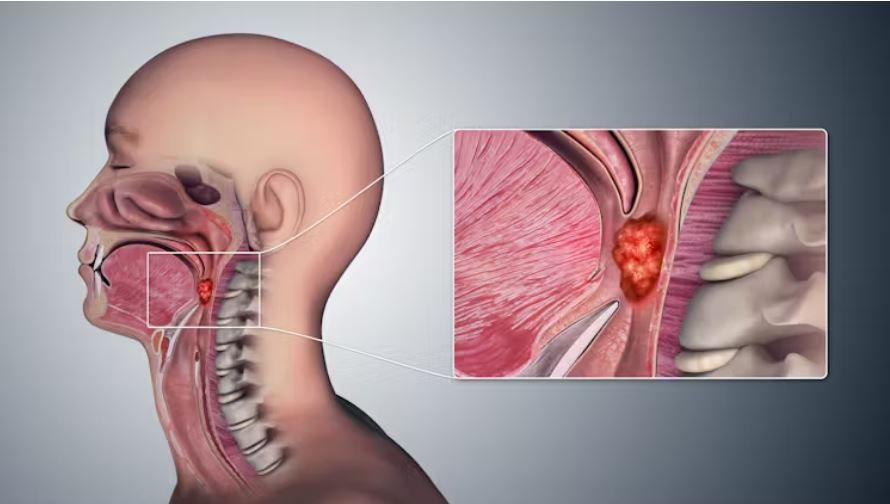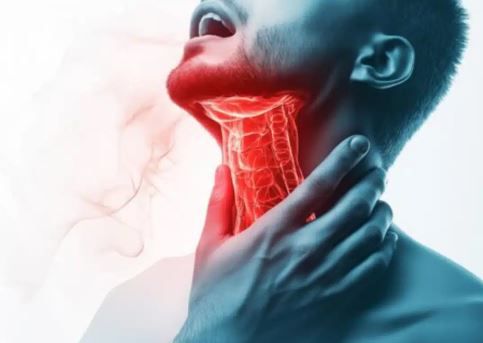Throat cancer, a condition that can affect the throat (pharynx), voice box (larynx), or tonsils, is increasingly attracting the attention of health specialists across Nigeria and the wider West African region. There has been a surge in public awareness following reports connecting throat cancer to the human papillomavirus (HPV), a prevalent infection that can be passed through oral sex. For many, the implications of these findings are both personal and far-reaching, especially as sexual health discussions gradually become more open in African societies. In this article, we delve into the symptoms, risks, expert perspectives, and how West Africans can protect themselves and their loved ones.

Understanding the Link Between Oral Sex and Throat Cancer
Recent research, including findings published by global cancer research authorities, suggests oral sex as a notable contributor to the growing incidence of throat cancer globally. This connection is largely due to high-risk strains of HPV—especially HPV-16—which have been strongly associated with cancers forming in the oropharyngeal region (the back of the throat, base of the tongue, and tonsils).
HPV is widespread and, in many cases, does not cause obvious symptoms, making it easy to transmit unknowingly. According to Dr. Ifeoma Okonkwo, an Abuja-based ENT specialist, “HPV-related throat cancer rates are rising in urban centres across Nigeria, especially as sexual behaviours evolve and awareness of sexually transmitted diseases broadens.” She points out that many people may not realise the connection, highlighting an urgent need for comprehensive sex education tailored for local realities.
Common Signs and Symptoms of Throat Cancer
Recognising the early warning signs of throat cancer is key to successful treatment. Healthcare experts, including those at the Nigerian Institute of Medical Research (NIMR), emphasise the importance of early medical evaluation when symptoms persist. Here are the most common red flags:
-
Persistent Sore Throat
-
A sore throat that lasts for weeks, especially without clear cause, can sometimes be a marker for more serious underlying issues.
-
-
Difficulty Swallowing (Dysphagia)
-
Trouble swallowing or a sensation that food gets stuck in the throat should not be ignored.
-
-
Hoarseness or Voice Changes
-
A persistent change in voice, including hoarseness, could indicate issues with the vocal cords or larynx.
-
-
Lump in the Neck
-
A swelling or mass in the neck may be due to enlarged lymph nodes or tumour growth and warrants medical review.
-
-
Chronic Cough
-
A cough that persists for an extended period, notably if accompanied by blood, could be a warning of a more significant health concern.
-
-
Ear Pain
-
Unexplained ear pain—particularly when one ear feels blocked or painful—can sometimes arise due to referred pain from the throat.
-
-
Unexplained Weight Loss
-
Shedding weight rapidly without dietary or exercise changes is often a sign that the body is battling something serious.
-
-
Breathing Difficulties
-
Struggling to breathe, or a persistent wheezing sound, might result from a tumour obstructing airways.
-
-
Bad Breath (Halitosis)
-
Constant bad breath (unexplained by oral hygiene) can sometimes signal infection or cancer-related changes.
-
-
Fatigue
-
Unusual and ongoing tiredness may be due to the body’s immune response to cancer.
-
If you’re experiencing any combination of the above symptoms for more than a fortnight, health officials encourage prompt checks, as many West Africans can attribute symptoms to minor infections and delay seeking treatment.
When Should You See a Doctor?
Medical experts universally recommend seeing a healthcare professional if symptoms last longer than two weeks, especially when accompanied by risk factors like smoking or frequent alcohol use. According to Dr. Kwame Mensah, a Ghanaian oncologist, “Many patients only present when the symptoms have become severe, which limits treatment options.” However, early assessment can rule out cancer or enable more effective intervention.
Prevention and Reducing Your Risk
-
HPV Vaccination: Receiving a vaccine against HPV, such as the Gardasil-9 vaccine, significantly reduces the risk of HPV-linked cancers. While HPV vaccination programmes are still developing in Nigeria, some private and public health institutions offer it, often prioritising younger age groups (girls and boys aged 9–14 years).
-
Safe Sexual Practices: Use of barrier protection (like condoms or dental dams) during oral sex can limit HPV transmission. Limiting sexual partners may also reduce risk, though experts stress that monogamy does not provide complete protection if one partner already carries the virus.
-
Avoiding Tobacco and Excess Alcohol: Tobacco use and heavy alcohol consumption are long-established risk factors for throat cancer. “Rates of head and neck cancers are much higher in populations with strong tobacco cultures,” notes Dr. AdedayoKolawole of Lagos University Teaching Hospital.
-
Routine Medical and Dental Visits: Regular check-ups with dentists and ENT (ear, nose, throat) specialists for persistent issues can catch early warning signs before cancer worsens. Dentists are often the first to spot subtle symptoms, a fact widely acknowledged within Nigeria’s growing private dental community.
Nigeria and Ghana both face infrastructural challenges when it comes to public awareness and vaccine penetration, with coverage rates for HPV vaccination far below global averages. Efficient public health campaigns, such as Nigeria’s “One Youth, One Vaccine” initiative, reportedly have the potential to significantly lower cancer rates over coming decades. Government and non-profit agencies continue to advocate for more funding and community-based education to bridge the gap.

Throat cancer poses serious health risks, but many cases can be prevented through lifestyle choices and early detection. Building a stronger understanding of how HPV and other factors contribute to throat cancer is crucial—not just for individuals, but for families, healthcare workers, and policymakers. As Dr. Rita Okorie, a public health advocate in Enugu, asserts, “With the right education and improved access to vaccines, we can turn the tide on HPV-related cancers in Nigeria.”
Remember, never ignore your body’s warning signs. Open conversations about sexual health, vaccination, and regular medical checks are vital as we continue to remove stigma around cancer in Africa. You can protect your health and contribute to community wellbeing by taking proactive steps today.
Have you or someone you know faced similar health concerns, or is throat cancer a growing worry in your community? What are your thoughts on HPV vaccination efforts in Nigeria, Ghana, or elsewhere in Africa? Share your perspective in the comments and stay connected for news on health, wellness, and lifestyle.
Do you have a health story, tip, or personal experience you’d like to share or see featured on our platform? We’re passionate about telling real stories that affect our communities. Whether it’s news, health advice, or issues on everyday life in Nigeria, Ghana, or the wider African continent, we want to hear from you!
Contact us at story@nowahalazone.com if you have a story to share or want to discuss story sales and submissions.
For general support, reach out to support@nowahalazone.com.
Stay involved by commenting below, and don’t forget to follow us on Facebook, X (Twitter), and Instagram for more updates on health, wellness, and life that matter to you!










